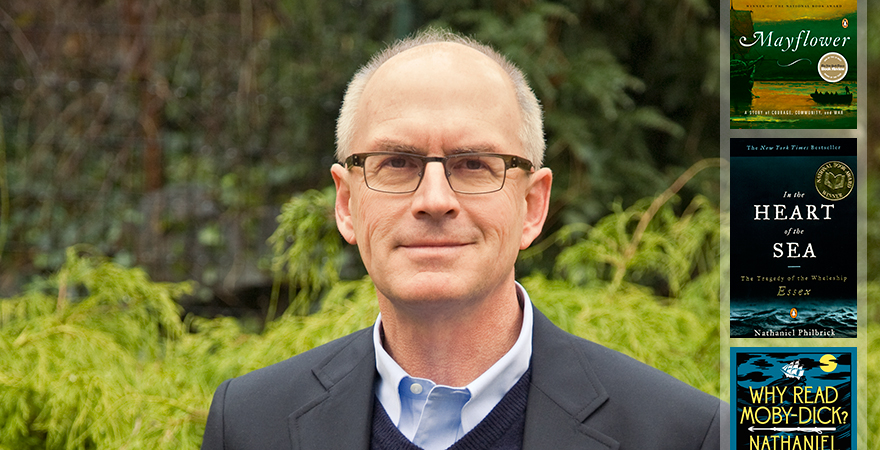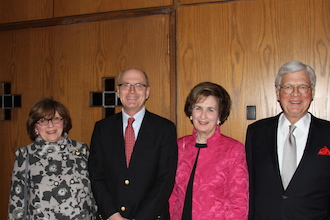
A capacity crowd filled the Sommer Center at Concordia College on Friday evening March 7 to hear New York Times bestselling author Nathaniel Philbrick give the Bronxville Historical Conservancy’s 16th Annual Brendan Gill Lecture.
In her introduction, Marilynn Hill, lifetime co-chair of the conservancy, said that Philbrick, who calls himself a “writer who happens to write about history, not a historian,” has written a number of books which nonetheless have made America’s past come alive for today’s readers. His book In the Heart of the Sea: The Tragedy of the Whaleship Essex won the National Book Award in 2000, and another, Mayflower: A Story of Community, Courage and War, was a finalist for the 2007 Pulitzer Prize in History.

To explain the odyssey which resulted in his most recent book, Bunker Hill: A City, a Siege, a Revolution, Philbrick recalled being a fifth-grader in Pittsburgh, Pennsylvania, and reading a book about Johnny Tremain. For the first time, he said, “I realized that history is about ordinary people caught in extraordinary situations. I saw there is a past where people actually lived and did things.” While the city of Boston is the true hero of the book, Philbrick also introduced the audience to Joseph Warren, a 33-year-old physician who became the on-the-ground leader of the patriot cause. Only his untimely death at Bunker Hill has kept Warren’s name from being engraved on Boston’s list of Revolutionary heroes along with Samuel Adams, Paul Revere and John Hancock.An accomplished storyteller, Philbrick kept his audience enthralled with the rapid pace of events which led directly from the Boston Tea Party, to the occupation of the city by thousands of British soldiers, to Paul Revere’s ride, the violent confrontation at Lexington and Concord, and finally the bloody battle at Bunker Hill.
He explained why the British generals, Thomas Gage and his successor William Howe, were so reluctant to press their advantage over the disorganized patriot militias and how the newly recruited George Washington began to shape that ragtag bunch into what became the Continental Army.
Philbrick made it clear that the colonists did not start out to seek independence. Most were deeply conservative people intent on keeping things they way they had always been, enjoying the “salutary neglect” that Britain used to govern them. Only when they were pushed to fight for their liberties to protect their way of life did events lead to the creation of a new nation. After the Declaration of Independence was read out to Boston’s populace, the lion and unicorn and other symbols of British sovereignty were pulled down and burned. Philbrick quoted Abigail Adams’ response: “Thus ends royal authority and all the people shall say Amen!”
Philbrick’s next book will chronicle the American revolt as it spread from Boston to New York and Philadelphia. The consensus from the audience seemed to be that they would like to invite Philbrick back to talk about the Revolution as it developed in our own backyard.